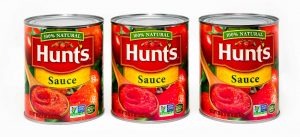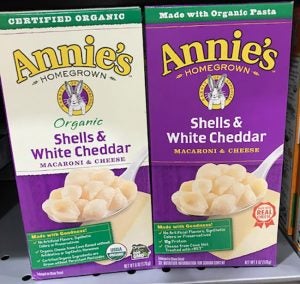Many companies today find that having a great product isn’t enough to inspire a loyal and dedicated customer base. That’s because a growing number of consumers expect businesses to be good corporate citizens, too. A recent survey conducted by Crestline Custom Promotional Products reveals 68.3 percent of American consumers want to support companies that share similar social, political, and environmental values as them. On the flip side, only 9.4 percent of those surveyed were completely uninterested.
So it’s no surprise that many companies spend a lot of time developing ethics policies and pledges to better the world. These broad statements are supposed to guide company decisions and define the business’s values.
But a peek under the surface shows that a lot of food companies are better at talking the talk than walking the walk, especially when it comes to marketing claims that they believe will earn them a larger market share. And some of the hypocrisy in the marketplace is downright ironic.
Take Mars, Nestle, and Hershey’s as an example. They sell chocolate treats to children (and adults) around the world. The companies promised decades ago to end child labor on their overseas cocoa operations. But some 20 years later, they still can’t promise that their products don’t involve child labor. In fact, the U.S. Labor Department estimates that 2 million children in West Africa work in dangerous conditions harvesting cocoa.
Child labor might be among the most extreme examples, but other food companies engage in their own hypocrisy, such as using The Non-GMO Project’s monarch butterfly label on products. NGP tells us its mission is to inform consumers about what’s in their food. But its director revealed their true intention is to “shrink the market for existing GMO ingredients and prevent new commercial biotech crops.” So it hosts misinformation on its website and falsely claims these crops are “risky” and “untested.”
It’s bewildering how food companies justify partnering with The Non-GMO Project at the same time as adopting ethics policies promising to be truthful and act with integrity.

Take ConAgra’s marketing policy: “Advertising, packaging and promotions must not misstate facts or provide misleading impressions.” So why did ConAgra’s Hunt’s advertise its canned tomatoes as non-genetically modified? There are currently no GMO tomatoes on the market. And claiming that Hunt’s aren’t genetically engineered certainly misleads consumers into thinking other brands’ tomatoes are. The FDA has even said such a practice is “false and misleading.”
PepsiCo’s policy is similar, telling marketers to never “use misleading or untruthful statements in our advertising or labels.” Yet PepsiCo brands like Tropicana Orange Juice, proudly displays The Non-GMO Project’s certification. But how can such a label be anything but misleading when there isn’t, and has never been, a GMO orange in existence?
It’s particularly galling to see the anti-GMO messaging on orange-juice packaging. Florida’s Natural uses the Non-GMO Project label and marks its juice as non-GMO. Its bottle also boasts that it’s a farmer-owned company. And its product is proudly made in the United States with Florida oranges. So its packaging wants us to believe it cares about Florida’s family farmers.
Yet Florida’s citrus farmers are facing the devastating citrus-greening disease, causing a catastrophic drop in fruit production. The disease has wiped out orange groves across the state, and bankrupted family farmers.
Bioengineering is the best option to save the Florida citrus industry, whose farmers don’t have the 20-plus years it can take to naturally breed orange groves resistant to the disease. Yet marketing gurus at food companies choose to vilify the scientific process instead and adopt a Non-GMO Project label that stigmatizes the very technology they need.
Florida’s Natural doesn’t care about family farmers in the state it’s named after; it only cares about market share, which it will lose if genetic engineering doesn’t save the industry.

The inconsistent messaging even plagues everyone’s favorite comfort food: macaroni and cheese. Consider Annie’s Organic Shells & White Cheddar version. The organic product boasts that it’s made “the way nature intended.” And it claims that purchasing organic helps create healthy soils and good water quality, improve natural habitats, conserve biodiversity, and support organic farmers. So purchasing Annie’s organic products seems like a great option!
But wait … Annie’s Shells & White Cheddar (notice the lack of “organic” in the title) doesn’t have the same benefits. Sure, Annie’s sources products from places it trusts. But that doesn’t quite have the same weight to it. And why is Annie’s selling a product that they claim on their other product does the opposite of its organic line: deplete soils, pollute water, devastate natural habitats, destroy biodiversity, and hurt organic farmers?
If it seems like Annie’s is trying to enjoy contradicting stances, that’s because it is. The organic claims are dubious. But if Annie’s wants to promote that message and brand itself as the way-nature-made-it option, why even have the alternative? Because it’s cheaper. Not everyone can afford the cost of marketing hype.
It isn’t really about being organic or working with brands you trust. It’s about using magical language that consumers feel good about. That’s what sells.
Any company can make bold statements about truthful advertising, and throw around words like “integrity.” But many food brands have a much harder time transferring those words to their company’s practices. Consumer loyalty can’t be won on hollow sentiments. And no consumer should trust any company that displays such outright hypocrisy.
Amanda Zaluckyj blogs under the name The Farmer’s Daughter USA. Her goal is to promote farmers and tackle the misinformation swirling around the U.S. food industry.



